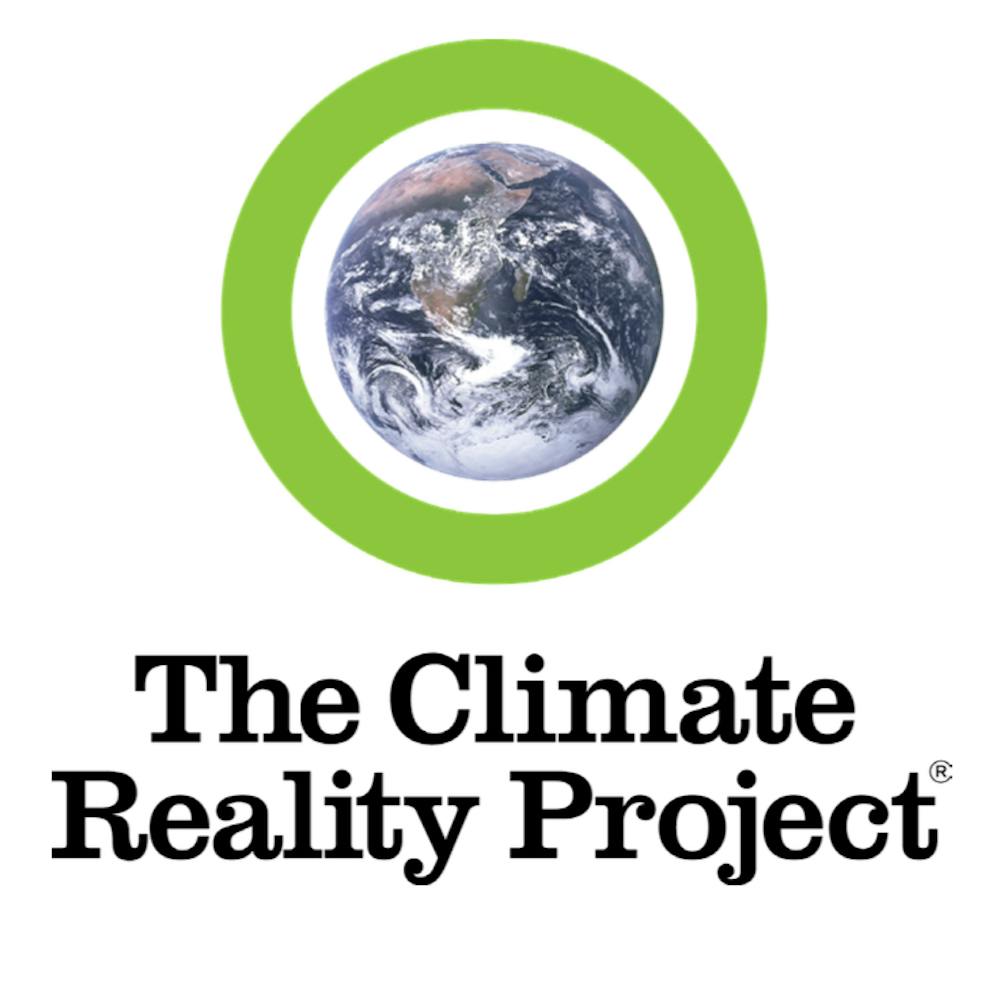American University students launched a chapter of a climate change advocacy group this semester, with the goal of educating others and promoting public service to combat the issue.
The Climate Reality Project hopes to empower students to become activists by giving them the tools, training and network needed to advocate for a systemic approach to addressing climate change. Philippa Keosheyan, the co-chair of the AU chapter, said that this organized, structured education system is what the project focuses on.
“I think Climate Reality is really about education initiatives,” Keosheyan said. “They hold regional trainings around the world every year that basically train climate advocates who then go out and educate their families, their co-workers, and their friends on climate change.”
The training is what allows anybody to advance into a Climate Reality leadership position within the program. These leaders can then start chapters, educate others and utilize the organization’s resources to run campaigns in their area, Keosheyan said.
Keosheyan and Linnea Capobianco, the other co-chair and founder, started planning an AU chapter after completing their training. For Capobianco, the experience was very personal.
“I’m totally seeing their mission play out,” Capobianco said. “Attending the virtual climate training totally did inspire and educate me. Now we’re going on to educate and take action with other students.”
The chapter, which launched at the start of the fall 2020 semester, has already made its mark. The group has held virtual presentations and worked with other programs and groups on campus, including Fossil Free AU and Sunrise Movement, Keosheyan said. One of their main goals is to focus on issues affecting the DMV, which includes issues specific to the AU campus.
“Over-recycling and incorrectly composting is a huge issue that we think we can tackle this semester,” Keosheyan said.
She hopes this can be combated through educational initiatives, as well as through implementing a sustainability section into the second semester of AUx, the mandatory freshman orientation course that partly focuses on social justice issues.
“In general, our goal is to not just have a little hub of environmentally active students, but actually just to have the culture of AU change a little bit,” she said. “That does start by educating the freshman on the climate crisis.”
Chapter spokesperson Kathryn Gilroy said that such a change is vital to addressing the overall culture at AU.
“I think the AUx one really hits close for me just because I am a freshman,” she said. “I’m very excited to develop a program because the freshman classes will just continue coming in and learn about climate change and sustainability.”
The chapter also hopes to implement other initiatives, including recycling and waste management campaigns, compost bins located around campus dorms and more discussions, presentations and advocacy. However, some of these plans have been slowed due to the coronavirus pandemic.
Climate Reality and other student groups have experienced lower turnouts without the presence of students on campus. Rather than meeting face to face, groups are forced to keep their interactions virtual.
“Zoom fatigue is so real; I think that that has caused us to experience low turnout despite so many people showing interest in the club,” Capobianco said. “We understand that if you have three classes that day you don’t want to hop onto another Zoom call at the end of the night.”
Despite these challenges, Climate Reality has developed ways to help students get involved. The group holds virtual meetings every Wednesday at 8:30 p.m., and leaders are also available through Instagram and Facebook.
Gilroy said she’s benefited from finding a community so early in her freshman year, at a time when connections are especially difficult to make.
“I’m coming into this not being on campus at all my first semester, so having this ability to connect with upperclassmen and learn about the campus is a great experience,” she said. “Being able to impact the campus even while I’m not there is just such a good feeling of accomplishment.”





